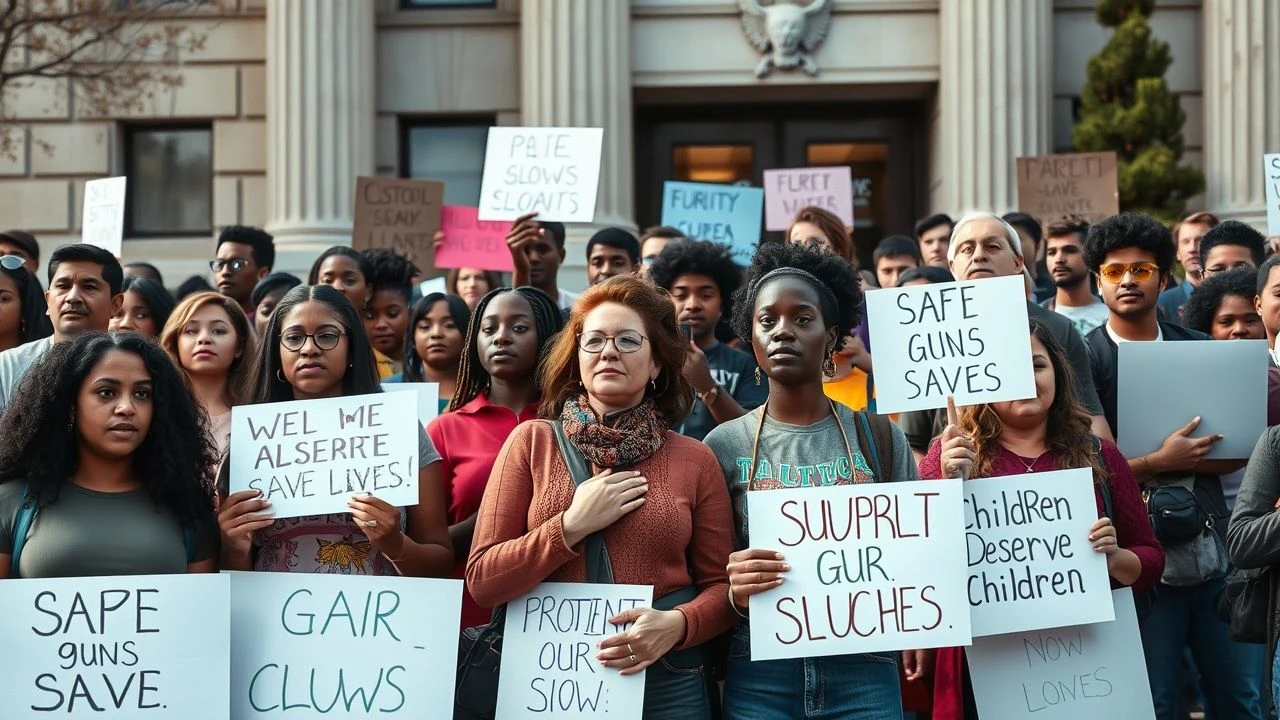The Current Landscape of Gun Violence and Public Opinion
The debate surrounding gun control is, without a doubt, heating up. Recent incidents of gun violence across the nation have, regrettably, become all too commonplace, leaving a deep scar on the collective psyche and significantly swaying public sentiment. These tragedies, splashed across news headlines and social media feeds, are undeniably fuelling the urgency for concrete action on gun control.
Polling data paints a clear picture: attitudes are shifting. Surveys consistently show a growing percentage of the population favouring stricter gun laws. Whether it's background checks, restrictions on certain types of firearms, or 'red flag' laws, the clamour for change is becoming louder and more insistent. For instance, a recent YouGov poll revealed that support for a ban on assault weapons has jumped by 15 percentage points in the last year alone. Yet there remains significant opposition, particularly among gun owners who feel their rights are under threat.
"We're seeing a polarisation of views," observes Dr. Emily Carter, a criminologist at the University of Manchester. "On one side, the grief and fear triggered by mass shootings are pushing for tighter regulations. On the other, there's a deeply ingrained belief in the right to bear arms, and concerns about governmental overreach."
Sociologists, similarly, point to a complex web of factors underpinning gun violence, including socio-economic disparities, mental health issues, and the pervasive influence of a gun culture. Addressing the root causes, as many experts argue, necessitates a multi-pronged approach that goes far beyond simply legislating firearms. Ultimately, the path forward involves navigating a complex and deeply divisive issue, balancing individual liberties with the collective need for public safety and security. The question remains: can new laws genuinely stem the tide of violence, or are more comprehensive solutions required to tackle the underlying factors contributing to this persistent problem?
Proposed Gun Control Measures: A State-by-State Analysis
As the gun control debate heats up, various states across the country are considering or have already enacted new gun control measures. A state-by-state analysis reveals a patchwork of approaches, each aiming to stem the tide of violence. For instance, some states are pushing for universal background checks, seeking to close loopholes that allow individuals to purchase firearms without proper vetting. Other states are considering red flag laws, also known as extreme risk protection orders, which permit temporary removal of firearms from individuals deemed a danger to themselves or others. The effectiveness of these laws is hotly debated, with supporters pointing to potential reductions in gun violence and opponents raising concerns about due process. Then you have the ever-controversial assault weapon bans, with states like California already having such laws and others contemplating similar measures. These bans typically target semi-automatic rifles and large-capacity magazines. Organisations like Everytown for Gun Safety and the Giffords Law Center offer detailed reports comparing the effectiveness of different gun control approaches, often highlighting the need for a multi-faceted approach that combines sensible gun laws with mental health support and community-based violence prevention programmes. The landscape of gun control is ever-changing and the political jostling is intensifying, especially considering that upcoming elections may change the balance of power in individual states which could influence their approach to gun control. Ultimately, the question is whether any of these proposed measures will truly stem the tide of violence and whether a more national solution can be agreed upon to stop the flow of illegal firearms across state lines.
The Second Amendment Debate and the Role of Advocacy Groups
The debate surrounding gun control in the United States inevitably circles back to the Second Amendment and its interpretation. At its heart, it's a clash of deeply held beliefs about individual liberties and public safety. On one side, you have staunch defenders of the right to bear arms, often citing the Second Amendment’s guarantee of a "well regulated Militia, being necessary to the security of a free State, the right of the people to keep and bear Arms, shall not be infringed." Advocacy groups like the National Rifle Association (NRA) play a prominent role here, arguing that any attempts to restrict gun ownership are a direct attack on this fundamental right. They would staunchly oppose what they see as overreach on freedoms. Think of it as a red line.
However, proponents of stricter gun control regulations interpret the Second Amendment differently. Many legal scholars and constitutional experts believe the right to bear arms is not absolute and that reasonable restrictions can be put in place to reduce gun violence. They often point to the first part of the amendment, focusing on the militia aspect. They argue the amendment was written with a different context in mind, and that today's society requires a different approach to gun ownership. You’ll often hear the phrase 'common sense gun laws' from this side of the argument. In addition, there are those who suggest that the amendment be repealed.
This difference in interpretation fuels the ongoing tension. The NRA and similar groups argue that increased gun control doesn’t deter criminals, as they will obtain weapons illegally regardless. They often advocate for increased enforcement of existing laws and focus on mental health solutions instead. "The Second Amendment isn't about hunting, it's about self-defence and protecting our families,"
is a common refrain. Counterarguments suggest that stricter background checks, bans on assault weapons, and red flag laws can save lives and reduce the frequency of mass shootings.
Understanding both sides of this debate – the fervent belief in individual liberties versus the urgent need for public safety – is crucial for any meaningful discussion about how to stem the tide of violence. The legal and philosophical complexities of the Second Amendment mean that finding common ground remains a significant challenge.

